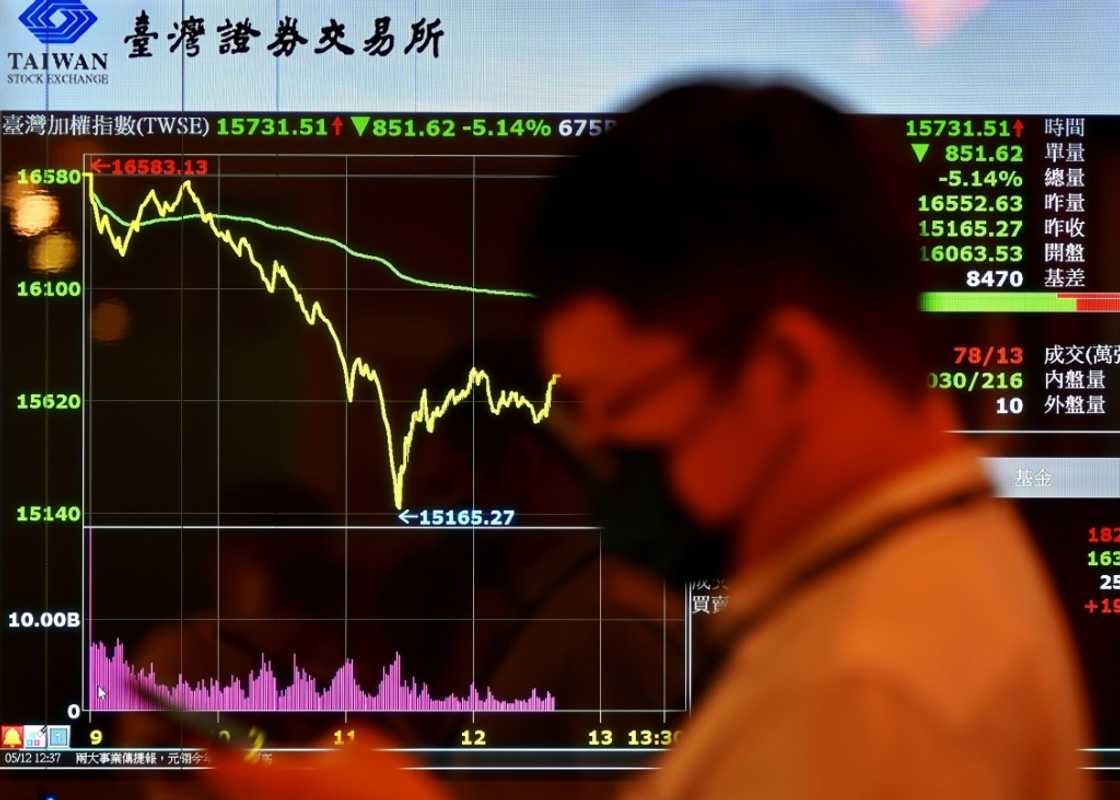
Asian markets tumbled on Monday following China’s imposition of significant tariffs on the United States, intensifying a trade conflict that has raised concerns among many about the potential for an economic downturn.
The trading floors experienced a surge in sell-offs as investors sought safety amidst the turmoil, marking one of the most challenging days for stocks since the onset of the pandemic. In this downturn, Hong Kong lost over 10%, Tokyo plummeted by 8%, and Taipei saw declines exceeding 9%.
Futures contracts for Wall Street’s indices were facing further declines, while worries over their effect on demand led commodities to fall sharply as well.
Last week, Donald Trump ignited a market downturn after announcing extensive tariffs targeting U.S. trade allies, asserting that these countries had been taking advantage of the United States for years and stating that multiple nations were eager to negotiate new agreements with Washington.
However, when Asian markets had closed on Friday, China announced it would apply counter tariffs of 34 percent on all U.S. products starting April 10th.
It introduced export restrictions on seven rare-earth materials, such as gadolinium — frequently employed in MRI machines — and yttrium, which is utilized in consumer electronics.
Expectations that the US president might reconsider his approach due to the unrest were shattered on Sunday when he stated that he wouldn’t strike deals with other nations until trade imbalances were addressed.
He refuted the notion that he was deliberately causing a sell-off and maintained that he couldn’t predict how the markets would react.
"He remarked that occasionally medication is necessary to address issues," referring to the upheavals that have caused trillions of dollars to be erased from company evaluations.
No sector spared
Selling activity throughout Asia was widespread, affecting every sector without exception – tech companies, automobile manufacturers, financial institutions, gambling businesses, and energy enterprises all experienced losses as investors distanced themselves from more volatile assets.
The largest decliners included prominent Chinese e-commerce leaders Alibaba and JD.com, which each saw their values drop by over 11 percent. Meanwhile, Japanese technology investment powerhouse SoftBank experienced a decline of more than 10 percent.
Shanghai lost over 5%, and Singapore dropped more than 6%. Meanwhile, Seoul saw declines of over 5% which activated a sidecar mechanism – for the first time in eight months – leading to a temporary halt in certain trades.
Fears regarding demand caused oil prices to fall over three percent on Monday, following an approximate seven percent drop on Friday. Currently, both key contracts have reached their lowest points since 2021. Additionally, copper—which plays a crucial role in energy storage, electric vehicles, solar panels, and wind turbines—continued to lose value.
"The market is in free-fall mode again, punching through floors," said Stephen Innes at SPI Asset Management. "Trump’s team isn't blinking. The tariffs are being treated as a victory lap, not a bargaining chip."
The downturn came after yet another day of heavy losses on Wall Street on Friday, with all three major indices dropping nearly six percent.
This followed when Federal Reserve Chair Jerome Powell stated that U.S. tariffs might lead to increased inflation and slower economic growth, and he also cautioned about a heightened possibility of rising unemployment.
Trump’s actions are expected to cause headaches for U.S. central bank officials as they attempt to juggle the requirement for lowering interest rates to bolster economic growth against the necessity of preventing price inflation from spiraling out of control.
Following Trump’s insistence that “my policies will never change” and his call for the Federal Reserve to reduce interest rates, he made these remarks.
In Powell's case, his options are limited," stated Innes. "While he has admitted the truth — that tariffs lead to inflation and economic downturns — he isn’t indicating any plans for intervention.
That’s the issue here. In this instance, the Federal Reserve’s directive on inflation compels them to maintain a tight monetary policy even as asset values suffer.
Tim Waterer, the head of market analysis at KCM Trade, stated: "Traders are anxiously observing the two largest economies engaging in a tariff battle and are concerned that they might suffer severe damage from an extended economic conflict."
Both the US and China continue to impose new tariffs on one another without yielding, leading to an increasingly tense situation where risky assets are shunned as though they were toxic.
Prominent individuals at approximately 0230 GMT
Tokyo - Nikkei 225: Down 6.5% at 31,591.84
Hong Kong - Hang Seng Index: Down 9.3 Percent at 20,725.20
Shanghai - Aggregate: DECLINED 6.1 percent to 3,138.32
West Texas Intermediate: DECLINED BY 2.2 PERCENT TO $60.66 PER BARREL
Brent North Sea Crude: Down 2.2% at $64.14 per barrel
Dollar/yen: FELL to 146.04 yen from 146.98 yen on Friday.
Euro/dollar: Increased to $1.0964 from $1.0962
Pound/dollar: Increased to $1.2908 from $1.2893
Euro/pound: LOWER at 84.94 pence from 85.01 pence
New York - Dow: Fell 5.5 percent to close at 38,314.86
London - FTSE 100: Down 5.0% to close at 8,054.98

0 Komentar